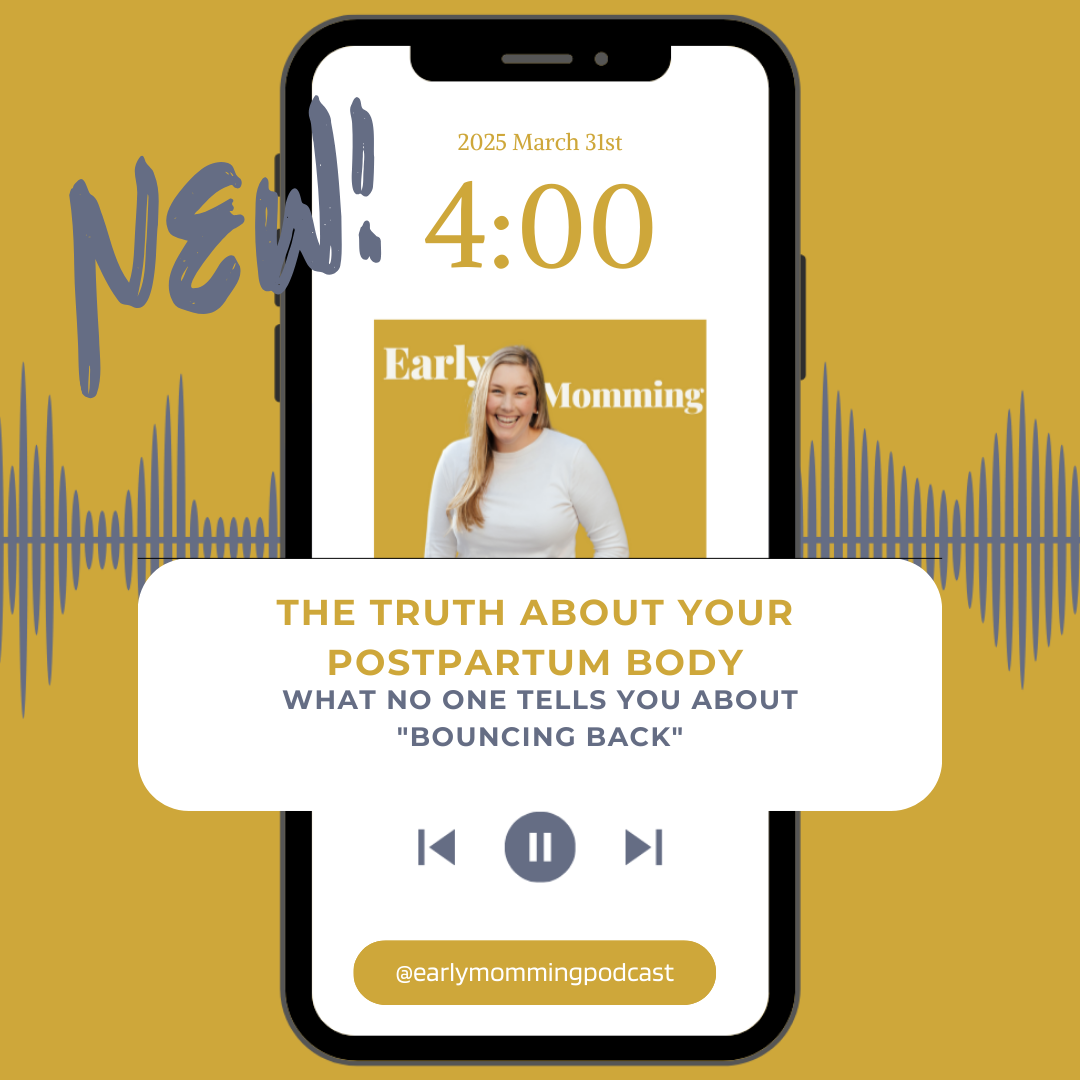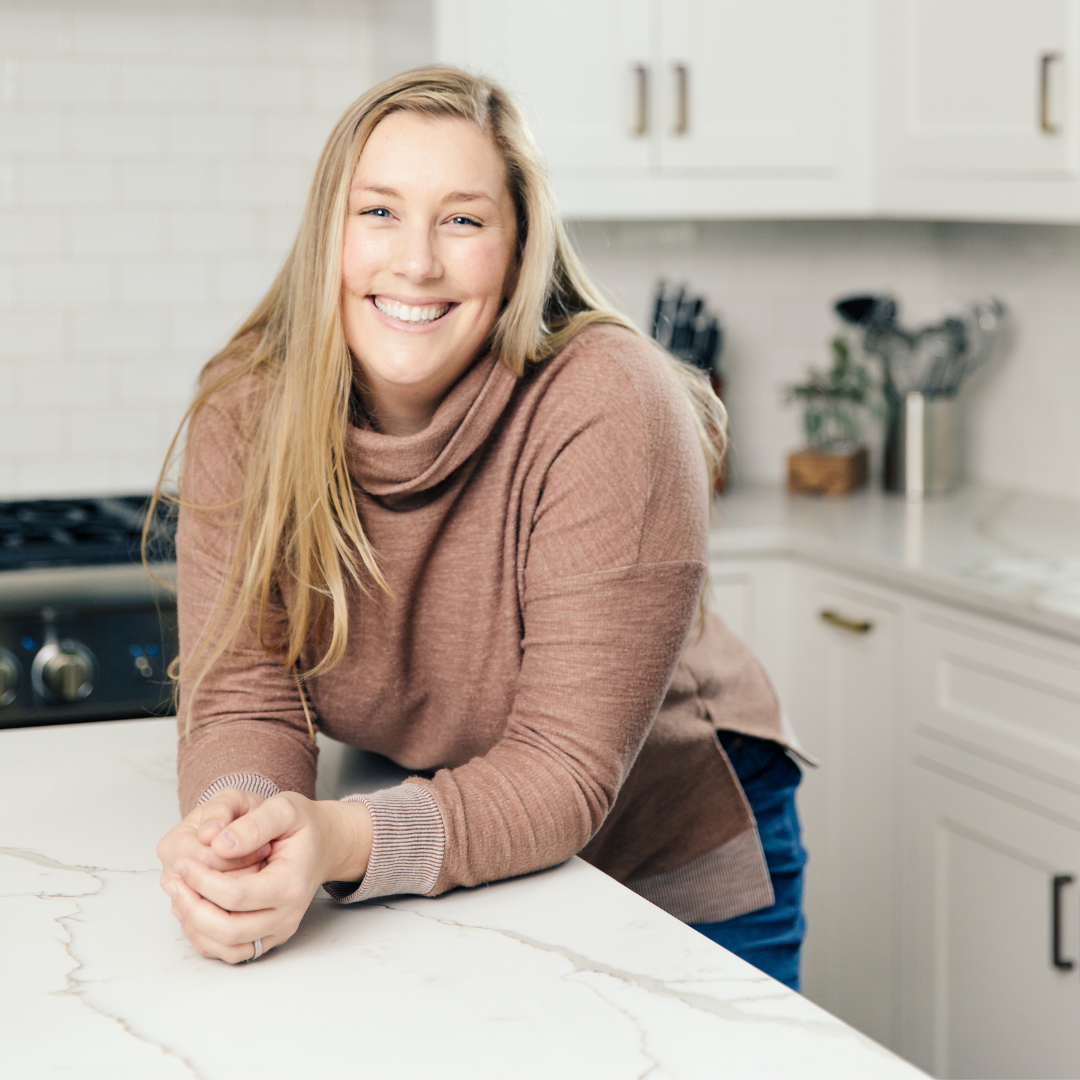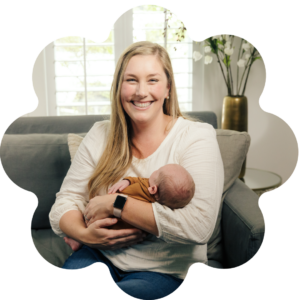
The Truth About Your Postpartum Body: What No One Tells You About “Bouncing Back”
You grew and birthed a whole human being. That alone should earn your body a standing ovation—but if you’re anything like most moms, it’s not long before the world starts whispering (or shouting) messages about getting your “body back.”
And here’s the truth that needs to be said louder for the moms in the back: your body never left. It transformed. And it’s still yours. Let’s talk about what really happens to your body after baby, why bounce-back culture is a trap, and how sleep (yes, sleep!) might be the most powerful first step in feeling more like yourself again.
Postpartum Body Image Is Complicated
You might be holding a perfect newborn in your arms and still glance at your reflection wondering who that woman is. That doesn’t make you vain. It makes you human.
The pressure to “bounce back”—to lose weight fast, to look like you’ve never had a baby, to feel sexy again overnight—is deeply embedded in our culture. From celebrity postpartum photoshoots to influencer “what I eat in a day” reels, the pressure is real. And for a lot of moms, it’s crushing.
The First Year (or Two) Is a Whole Journey
Despite what some postpartum checklists tell you, it doesn’t take six weeks to recover from pregnancy and birth. It takes at least a year—and often closer to two. Hormones shift. Sleep gets interrupted. Breastfeeding, bottle feeding, stress, and just trying to stay afloat all play a role in your recovery.
And while you may start to feel like yourself again in small pockets early on, the real physical and emotional transformation takes time. That’s not a flaw. That’s the process.
What Actually Happens to Your Body After Birth
No one prepares you for the reality of postpartum changes. Yes, your uterus will contract while you breastfeed. You might bleed for up to six weeks. Your breasts may leak, swell, deflate, and change entirely. You’ll likely sweat at night, maybe even through your sheets. Hair might fall out in clumps. And you may look in the mirror and not recognize your body—or your face.
You might also feel disconnected from your baby, even though you’re doing everything “right.”
None of this means you’re doing anything wrong. It just means you’re human—and postpartum.
Let’s Talk About the “Bounce Back” Lie
Can we just say it? “Bouncing back” is a myth.
Your body doesn’t go back. It moves forward. You’ve changed, and that’s not just okay—it’s beautiful. The idea that you’re supposed to look like you never had a baby just weeks after birth isn’t just unrealistic, it’s harmful.
Let’s shift the goal.
Instead of getting back to your pre-baby body, what if the focus was on getting back to feeling like you again? That starts with small, doable things: a walk around the block, a high-protein breakfast, drinking a full glass of water first thing. But most importantly—it starts with sleep.
Why Sleep Is the First Step
You cannot pour from an empty cup—and when you’re sleep deprived, everything is harder. That includes regulating hunger cues, managing stress, and even losing weight.
When you’re not getting enough rest, your cortisol levels spike. That makes it easier for your body to hang onto fat. Your metabolism slows, your cravings intensify, and your energy tanks. It’s a perfect storm—and sleep is at the center of it.
That’s why we created The Guide to Dropping Nighttime Feeds. This guide helps you optimize daytime feedings so your baby can naturally begin to sleep longer stretches at night.
No crying-it-out. No guilt. Just a clear, practical path toward longer stretches of rest—for both of you.
Healing Means Changing the Conversation
Let’s normalize all of it:
-
That you can be thankful for your baby and still miss your old body.
-
That you can feel strong and still be tired.
-
That you can want to lose weight and still love yourself right now.
You’re allowed to feel two things at once. And your feelings are valid.
Instead of critiquing your body, start by getting curious: What would help me feel more like myself today? A real meal? A ten-minute walk? Asking for help? Putting your phone down for a few hours?
These things matter more than another influencer’s “what I eat in a day.”
Reclaiming Your Confidence—Your Way
There’s no one-size-fits-all approach to postpartum healing. But here’s what we know helps:
-
Eating real, nourishing food that supports blood sugar stability and hormone balance.
-
Moving your body gently and consistently, especially with strength-based movement.
-
Speaking your experience out loud—to your partner, your friend, your therapist.
-
Protecting your peace. Unfollow or mute any content that triggers self-comparison.
-
Getting better sleep. Truly—it’s foundational to everything else.
And remember, your body is not a problem to fix. It’s the home that built, birthed, and continues to sustain your baby. It deserves care, not criticism.
One More Thing (Say It With Me):
My body is not broken. It doesn’t need fixing. It’s the home that built, grew, and sustained my baby.
You are already enough.
And if you’re ready to stop running on fumes and start feeling more like yourself again—
👉 Download The Guide to Dropping Nighttime Feeds and take the first step. Because when you sleep more, everything gets easier.
In your corner,
xx- Hillary

Expert Insights Delivered to Your Inbox
Hey, I’m Hillary. As a labor & delivery nurse, feeding specialist, and a mom of four, I have a lot of friends
It’s funny. I may not hear from someone for actual decades, and then, when they hit about their third trimester, the texts start rolling in.
Honestly, I’m glad to be there for them; few moms have a qualified (and non-judgy!) friend in their corner.
I’d like to be in your corner, too.




